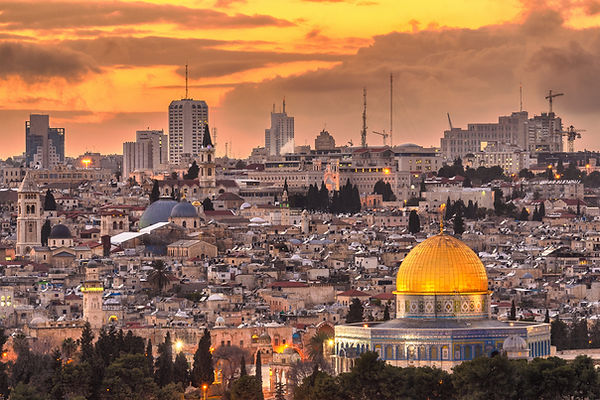
Old Moaner Travel
I haven’t been everywhere, but it’s on my list
Israel
My first, of several, visits to Israel was in 1988 when I visited my sister who was staying on a Kibbutz.
On my first evening there we climbed a nearby hill to watch the sunset but instead of looking west my eyes were drawn in opposite directions as in the distance I could see both Jerusalem to the north east and Bethlehem to the east and it crossed my mind what a massive influence the area I could see before me has had, and still has, on the history of this planet and our civilisation – it was actually a very profound moment.
The sunset was also pretty spectacular as well.
Most visitors come to Israel or, more specifically, the Holy Land because of their religious beliefs.
By the time of my visit, any religious belief I may have had had been replaced by cynicism disbelief and anger. Disbelief at the gullibility of people who unquestioningly follow a religion or belief and anger at religious leaders who brainwash, exploit and use their followers, very often to enhance their own lifestyle – both of which resulted the strong cynicism. A cynicism which has become increasingly stronger every day since.
I always think it ironic the Mafia is considered the worse organised, abusive crime syndicate operating out of Italy, whereas the Catholic church is even worse.
The Catholic church is responsible for far more suffering and deaths than any other organised crime syndicate.
Like most children of my generation I was taught the story of Jesus as being fact when at school – it wasn’t something you questioned, or even encouraged to question. It was an unequivocal fact in the same way night follows day.
However whether you are a believer or not, Israel is well worth visiting, however it is like no other country and the biggest difference you will notice is the heavy and overt security.
It can be off-putting, initially, seeing a heavily armed presence wherever you go in the country but it is, at the same time, reassuring and on my many visits to the country I have always felt relatively safe.
On the other hand visitors need to be realistic and understand there are security issues and terrorism, be it improvised or in the form of rocket attacks from Palestinian extremists, is a fact of life in the country.
Prices quoted and currency conversions are a guide only and are correct as of August 2020
Getting There
Unless visiting Eliat, most visitors will fly into Ben Gurion airport near Tel Aviv.
Security on flights to Israel is generally even stricter than on normal international flights, more so if you fly with El Al, Israel’s national carrier. Don’t be surprised if you are approached and questioned by security staff as you queue to be checked in.
Security at airports in Israel is incredibly tight, expect a detailed security interview before you are even allowed to approach security control for your baggage check. Make sure you have hotel receipts to hand and if you have been on any trips to or passing through the West Bank – visiting the Dead Sea for example, make sure you retain your tickets as proof of travel.
There are direct train services from the airport to both Jerusalem and Tel Aviv, journey times for both around 20 minutes. However, be aware the stations in Tel Aviv are located on the outskirts of the city, so you will need to get a taxi from the station to city centre hotels.
A shuttle bus connects to Jerusalem, departing hourly, six days a week – it doesn’t run on Shabbat (Friday evening – Saturday evening) and costs 14 NIS (£3.15) – the journey time is about one hour with several city centre stops, including the central bus station.
A private transfer to central Tel Aviv hotels will cost around £50.
If visiting Eilat you may fly into Eilat Airport 19 km north of the town.
Buses to Eilat run every 15 minutes. A better option is a taxi, which costs 100 NIS (£22.50)
Getting Around
Travelling around Israel by public transport is very common, with high fuel prices and expensive parking it's the way most Israelis travel around the country
You will need a Rav Kav card to use public transport, a pre-loaded travel card like London's Oyster card. Indeed it is the only way you can pay for a bus journey.
North of Beersheva most of the major cities are linked by rail and a high speed rail service runs between Jerusalem and Tel Aviv.
Egged is Israel's version of the UK's National Express or the USA's Greyhound and provides inter-city bus services, which are incredibly popular, booking recommended on the busy services.
Bear in mind public transport is, at best, minimal and in most cases non-existent during Shabbat (sunset Friday to sunset Saturday) - services will begin winding down before sunset on Friday, some services will restart after sunset Satu, running until around 01:00 Sunday mornings.
Back to Rest of World home page